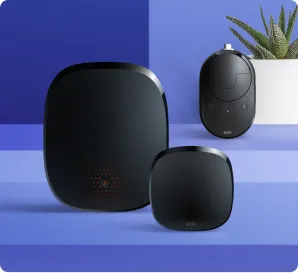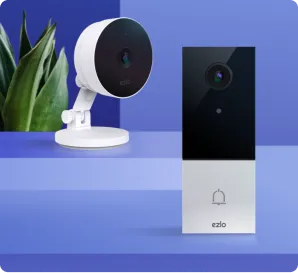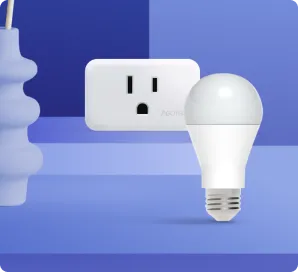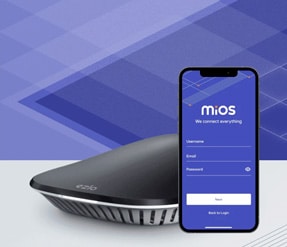Essentials of Automated Home Systems
Automated home systems help transform your home into a cozy, comfortable, and automated space that improves the quality of your life while also saving you money and improving efficiency. In addition, automated home systems lower your energy consumption and provide valuable information on the operation of your appliances.
The ability to control the automated home systems on your smartphone, tablet, or PC through an app can transform your life by providing convenience and peace of mind.
An automated home system performs the following functions:
- Wake up alarms, weather check, and schedule your day
- Controlling lights, doors, thermostats, window shades, and more
- Heating, cooling, and ventilation
- Automatic watering systems
Components of Automated Home Systems

Most components of an automated home system work together to manage various physical functions in your home, such as lights or appliances, based on the information gathered by the sensors. Each device serves a specific purpose in-home automated systems by responding to instructions that you key in the system and voice commands.
Smart Home Hubs or Controller
A controller can be your smartphone connected to the internet or a sophisticated computerized control unit connected to your entire home network.
The controller sends commands to the various components of your smart home automated system through a variety of communication channels.
Automated Lighting
Lighting automation requires a connection of light bulbs to a network to achieve remote control. Here, you can set timers so that lights can turn on and off at certain times. You can have your lights dim or brighten accordingly and choose which rooms to light.
Heating and Air Conditioning
A reliable heating and cooling system help keep your home comfortable year-round. Automated home systems allow you to control it from an app on your phone or through a smart thermostat.
Smart Locks
The locks in your home provide you with remote access to them while you are away. For example, you can remotely let visitors in or open the door for someone who needs access to perform maintenance or repair work.
Sensors and Alarms
Sensors such as motion detectors, temperature sensors, sound monitors, and leak detectors collect data about your environment and send that information to the controls. You can install them on doors and windows to monitor key access points.
Security Cameras
Smart home security systems provide constant vigilance over your family’s safety. Your system can notify you on your smartphone if there’s any unusual activity in or around your house.
Appliances
Automated homes use appliances that you can control directly to make their operation more convenient. These appliances are electronic devices that you may want to control, including coffee makers, vacuum cleaners, fans, heaters, fireplaces, sprinklers, and air conditioners.
Entertainment Systems
The entertainment systems in automated homes include TV screens, audio speakers, DVD players, and cable boxes.
Thermostats
You can have your thermostat control the temperature while at work or when sleeping. Temperature control is paramount as it ensures you are not heating or cooling an empty house.
Benefits of Automated Home Systems
Home automation systems allow you complete control over your home and provide the following benefits:
Convenience
Automated home systems allow you to control everything from one place, either through a physical control panel or from an app on your phone. Remote monitoring keeps an eye on your residence and ensures everything is safe and secure. For example, you can keep tabs on your heating, lighting, and security. Imagine the convenience of returning home in the dark and cold and finding your lights on and heat running just before you arrive. You can also use apps to check whether you lock your doors or windows.
Cost savings
Keeping your thermostat at the right temperature can help you save money resulting from lower energy usage. With remote control, you will never have to worry about leaving an appliance on and wasting energy. Smart LED bulbs also save you money on light bulbs as they last longer than traditional ones.
Safety
Motion sensors and cameras integrated into your smart home security system monitor your home when you’re away and send notifications when an intruder triggers the alarm or when a sensor detects motion in your house.
Save Energy
Automated home systems help you save energy by turning off lights at the appropriate times, translating to less electricity consumed overall. In addition, you will be sure that the thermostat is not heating an empty house.
Final Take
Automated home systems involve using technology to reduce the human effort needed to complete a routine task. As automation becomes sophisticated, it infiltrates more and more aspects of our lives, including consumer electronics and home appliances.
Modern smart homes harbor automated devices like doorbell cameras, intelligent light systems, smart locks, robotic vacuums, etc. These devices use sensors to monitor different parts of your home and take action based on what they detect based on your preferences and routine.


















